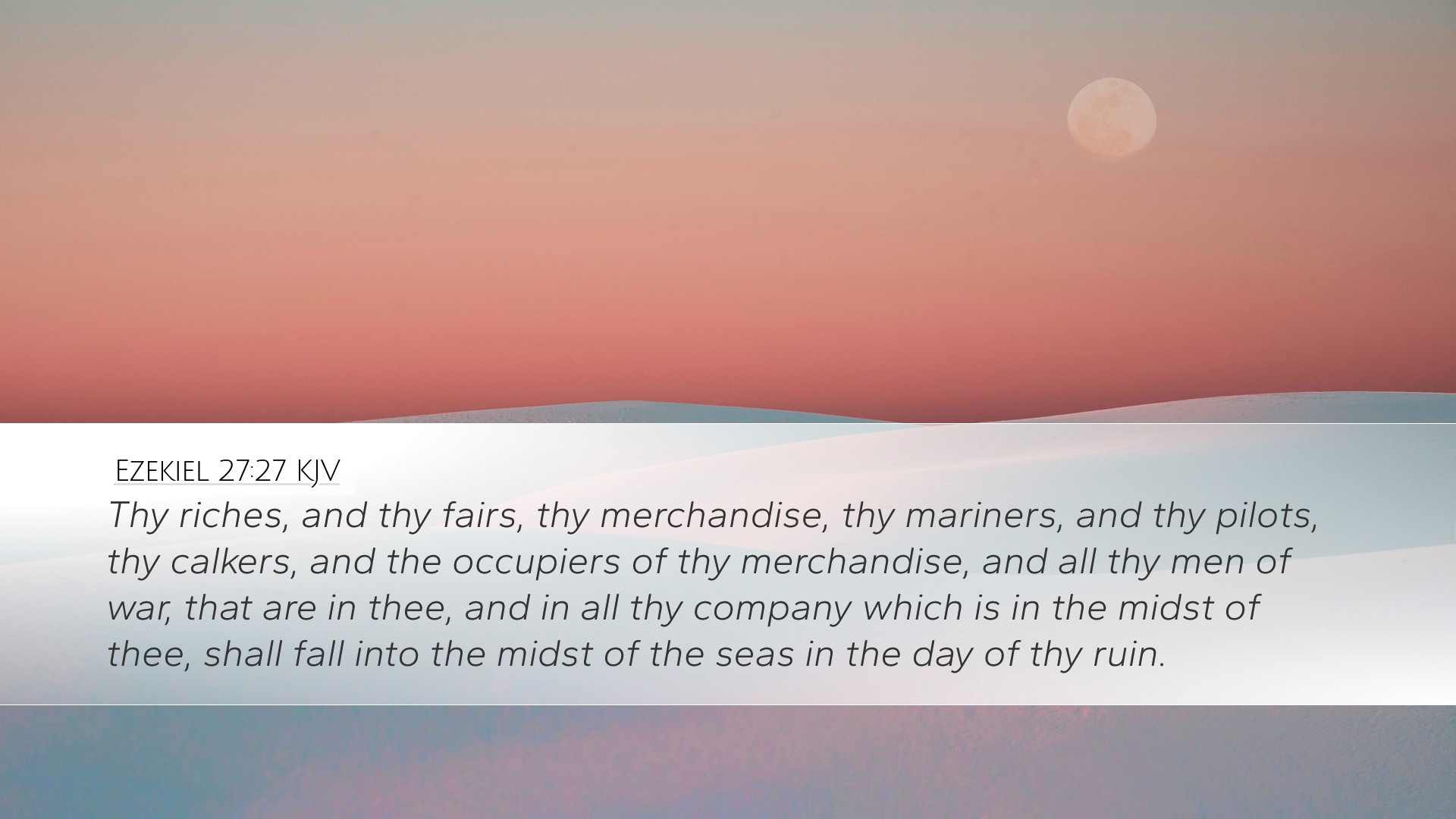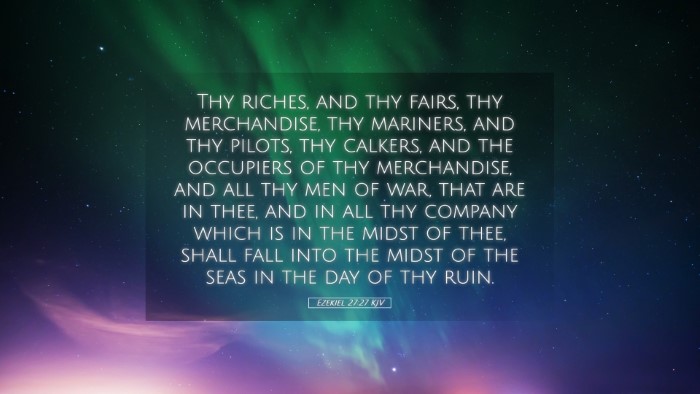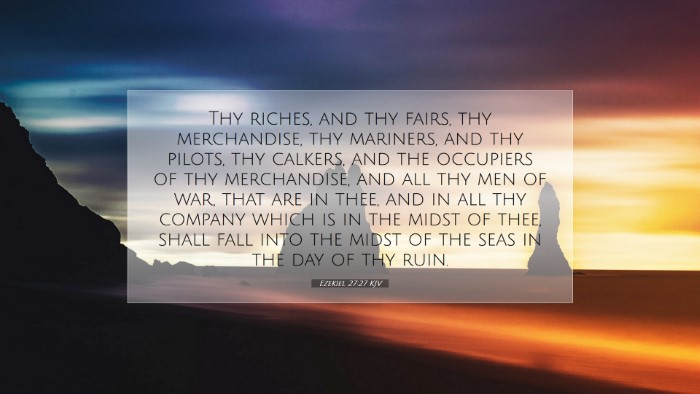Ezekiel 27:27 - A Comprehensive Commentary
Ezekiel 27:27 states, "Your riches, wares, and your merchandise, your mariners and your pilots, your caulkers, your traders and all your warriors who are in you, and all your crew that is in your midst, shall fall into the midst of the seas on the day of your ruin." This verse is part of a passage where the prophet Ezekiel delivers a prophetic lament over Tyre, symbolizing the ultimate downfall of an entity that once was powerful and influential.
Context of Ezekiel 27
The chapter serves as an elaboration of Tyre's trading glory, filled with extensive enumerations of its expansive trade routes and maritime prowess. Ezekiel, in his prophetic role, depicts Tyre as a grand ship, buoyed by commerce and enterprise, which, despite its lofty standing, is doomed to fall.
Insights from Matthew Henry
Matthew Henry emphasizes the idea of divine retribution against nations that become proud and rely solely on their wealth and resources. He notes:
- Pride in Temporal Wealth: Tyre's merchants would rise and prosper only to witness their downfall, which illustrates the ephemeral nature of riches.
- Day of Ruin: The phrase indicates a day ordained by God when such prideful cities face judgment.
- Universal Loss: The reference to mariners, pilots, and crew signifies that the fall affects all aspects of Tyre, not just its leadership or wealth.
Insights from Albert Barnes
Albert Barnes expands on the themes found in this passage, particularly the symbolism of the sea as chaos and destruction:
- The Sea as Judgment: For Barns, the sea is not just a literal body of water but a representation of chaos and divine judgment during which Tyre’s systems collapse.
- Comprehensive Destruction: He underscores that the fall of Tyre will be a total collapse, wherein every sector of their trade and governance succumbs to ruin.
Insights from Adam Clarke
Adam Clarke delves into the metaphors used in Ezekiel's description. He writes:
- Metaphorical Language: Clarke points out the heavy use of metaphor in depicting Tyre as a great ship, with its inhabitants as crew – always reminding readers of the folly of relying on worldly status.
- Divine Sovereignty: He highlights how this destruction reflects God's sovereign authority over nations.
Theological Implications
The verse raises profound theological themes regarding the fate of nations and the nature of divine justice. It serves as a sobering reminder that:
- The Temporal Nature of Human Endeavors: The eventual downfall of Tyre warns against overconfidence in human achievement and material wealth.
- Judgment as a Restoration of Order: The destruction points toward God’s intent to restore righteousness where there is hubris and corruption.
- The Universality of God's Judgment: Just as Tyre affected the economic systems of surrounding nations, their downfall serves as a template for understanding God’s judgment over all peoples.
Application for Today
For pastors, students, theologians, and Bible scholars, Ezekiel 27:27 can provide essential insights into contemporary life. Key applications include:
- Evaluating Wealth: A call to assess our reliance on material resources and the transient nature of economic power.
- Understanding Consequences: Recognition that nations or communities that turn away from divine principles invite judgment and chaos.
- Promoting Humility: Encourages believers to humbly acknowledge God’s sovereignty in their lives and communities.
Conclusion
Ezekiel 27:27 serves as a potent reminder of the implications of pride, materialism, and the inevitable justice of God upon nations whose hearts stray from righteousness. By drawing together insights from public domain commentaries, we can comprehend the richness of this passage and its lasting relevance to our faith and practice.


